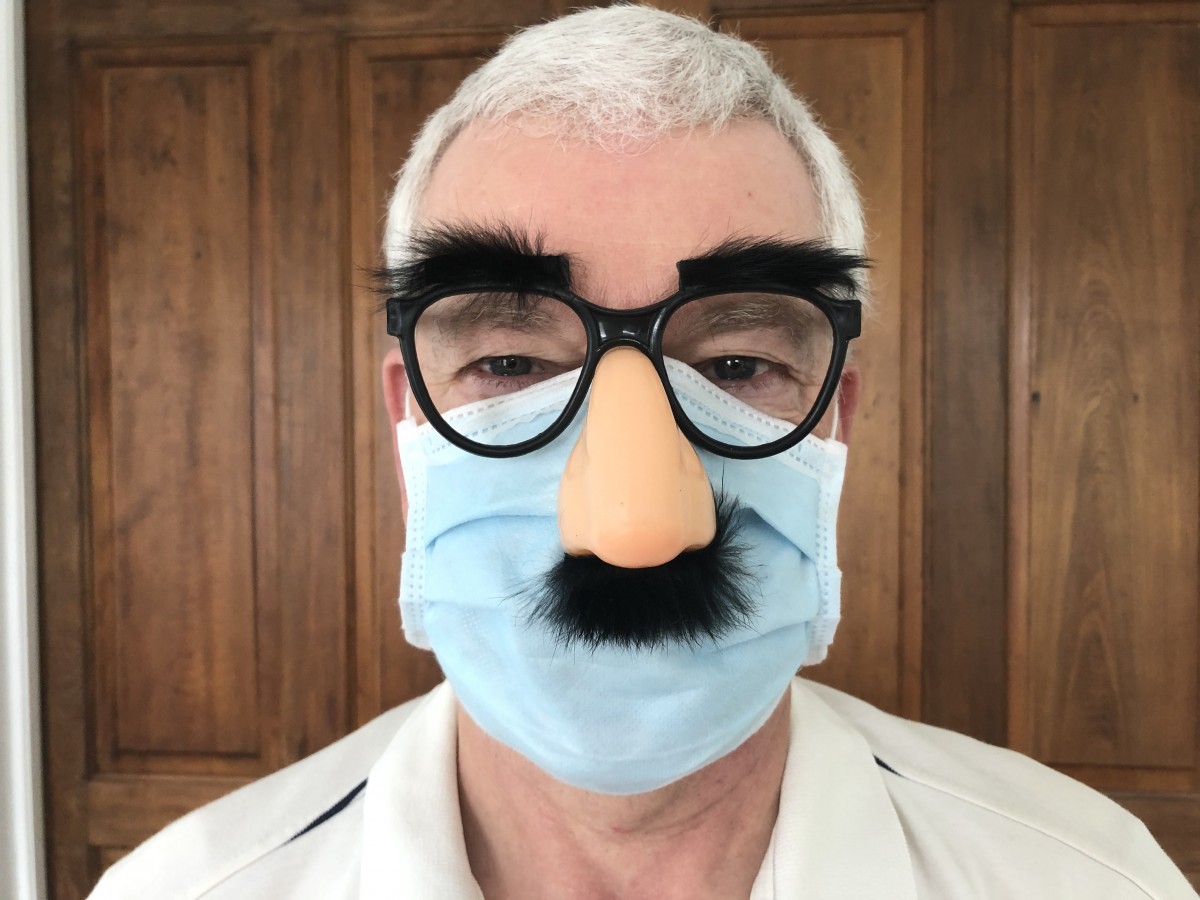What should we learn or know and why? This is a question driving me beyond accelerated learning and epistemology, into the research of meaningful life. Is there a single answer for all men and women, or each of us is doomed to create his own meaning? Let us brainstorm together.
Introversion by adversity
With COVID19 I have fewer chances to go out and more chances to research. As I read and write very fast, the research soon started to grow exponentially. It is very easy to say that happiness is pleasure and purpose or that we evolved to procreate physically and culturally. I still believe it is true. Now what?
I had months at home, working remotely, and researching whatever I wanted to research. How do I apply my wisdom? What should I research next and why? Moreover, what should I do with the results of such research?
All my answers do not immediately manifest themselves as keywords for future activities. And the results of my research are not promised to make the world a better place.
Choosing what to read is a fundamental research skill. Want to do this like a pro? This is yet another skill we teach at research and creativity course. You don’t have to pay the full price. Just contact [email protected] to request a significant discount. Satisfaction is assured!
“Simple” answers
I have some general knowledge, and occasionally I use it. There are several theories which provide simple answers to the hardest questions.
- ACT. The psychological paradigm outlining the tools that allow the definition of a meaningful life and workable solutions [masterclass recorded, currently in editing]. It provides solutions I will be comfortable with, but not necessarily excited about.
- Octalysis. A gamification theory that outlines the taxonomy of human values and passions. Whatever I decide to do or learn, I can at least turn it into a game.
- Bloom’s taxonomy. A pedagogical approach to cognition and critical thinking. While the tools of metacognition, logic, and analysis do not directly provide insights they allow to reflect on subjects more effectively [masterclass recorded, currently in editing].
- Synesthesia. I had enough strange training for my mind to work in mysterious ways. An idea may come to me as a visual or audio metaphor, and then I should be able to cross the boundaries between senses.
And then if everything else fails I can write an autobiography and see what surfaces [recorded, currently in editing].
So I spent about half a year worth of research with various interdisciplinary theories, trying to understand their answers. Was it interesting and useful? Definitely.
Explosion of questions
I got many great answers, which I really appreciated. In fact, I appreciated these answers enough to try to understand them better. And immediately there was a huge and basic problem. Apparently, every good answer I find brings four more good questions. At each iteration, formulating the question and getting a good answer is harder.
Some questions are very technical, like how to implement a certain abstract construct. Immediately the construct opens up into a myriad of workable technical solutions, each with some pros and cons.
A very different question: how a certain approach was developed. Behind some innocent ideas and sentences, I found monstrous mathematical theories, very subjective personal experiences, or amorphous spiritual dogmas.
Now what? No person can research all of it. If I somehow succeed in understanding the current state of the art results, I will have yet more unanswered questions, only this time without any supporting research.
Synesthesia: what to do when nobody has an answer
I was not born with synesthesia, but I definitely acquired some sort of synesthesia through practice and research. It was not like I practiced coloring letters. I added color to represent various executive decisions regarding the entire sections:
- use that as methodology, innovation, or supporting data
- memorize, research further, or discard
- am I happy with my understanding or should I read that part again?
Next, I started to see colors when listening to music. Mostly colored circular shapes corresponding to chords and dynamics.
The keywords translated into PAO generating elaborate imagery. Sometimes vise versa. This works for me, but I do not really know how to teach it. Moreover, scientific papers do not understand this, considering it as a chemical aberration. From my experience, I understand that this is an outcome of using the entire brain for processing, but I do not see any fMRI studies supporting this.
Even speedreading is discarded as impossible by some scientists, and I read fast all day long, as well as most of my students.
My own theory
So I decided that I am tired of other people’s theories and want to propose my own. Chunking is something that we teach to overcome the complexity of hard questions. The practice of chunking suggests between 3 and 5 branches at each decision node. The chunking can work both top-down and bottom-up.
At the bottom level, I started to build masterclasses and minicourses.
At the top level I outlined four major questions:
- How to acquire knowledge successfully? [KeyToStudy]
- How to implement a more meaningful life based on a certain vision? [KeyToVision]
- How to make the world a better place by influencing other people? [KeyToMission]
- How to improve my own personal wellbeing in a smart way? [KeyToMeaning]
Then I started building connections between the subjects and chunks…
Huge holes
Immediately after the chunks were drafted, I noticed huge holes in my personal understanding. Some things I simply do not know. Other things I know to implement very well, but when I talk about them I do not sound right. Strangely enough, when dealing with high math and SW architecture – things that I do all day long in my day job – I have great intuition and results but they are practical, not theoretical. In certain other areas, it is just the opposite. Learning musical theory is relatively simple for me as a mathematician, but I do not have enough time to truly master a musical instrument.
Where I could I patched the holes in my understanding as well as I could. I might add better solutions in the future as I process each subject deeper. I do not fully understand the scope of such work.
The biggest hole I need to master right now: define the training procedure for each of the main skills and subjects I detected. The challenge is enormous.
Interdisciplinary clusters
As I continued my work, certain clusters started to emerge.
KeyToStudy deals with accelerated learning and math interpretation (!) skills.
KeyToVision deals with business/management skills.
KeyToMission deals with all kinds of writing, private and public.
KeyToMeaning is a crazy combo of psychology, art, medical insights, and stuff that does not belong elsewhere.
You do not need to be a mathematician to interpret graphs and you do not need to be a doctor to know that vitamins and sport are good for one’s health.
A sentence where a book would work better
My next issue is a big one. My time is limited. Quite often I mention in a couple of sentences a subject that is better conveyed in a book. Sometimes I read the relevant books and I do not feel that I am talking on a different level. Other times I really want to refer to a good book, only do not want to generate a very long reading list. And sometimes I do not know a good book.
This is a place to mention again that I read fast. I can finish 400 articles or 5 books in a single day. I will be tired, but I definitely do that on rare occasions. Do I expect the same from my students? Not really.
Jonathan Levy wrote somewhere that successful people read 20 or 30 books in a year. I read that much in a week if I find books worth reading. To be honest I rarely do. I do not have a book fetish and do not keep large libraries. So would it be responsible to provide a very long reading list with each section I write?
I will personally write some books to reduce the overhead… It will take me some time though…
What is the pipeline?
I refer to my process as a pipeline.
- Ask a question.
- Create groups of keywords defining the question.
- Read. A lot.
- Maintain reading diaries with summaries.
- Write. Blog posts, video scenarios, books, whatever…
- Practice what you teach. Gamify the experience.
- Write some more. Lessons learned, confessions, tips…
- Ask deeper questions.
This pipeline is very rewarding in terms of constant improvement, action items, research keywords etc. It is very practical. It does not make the world a better place. The research subjects need to be selected appropriately to do that.
What makes the world better?
I do not know, but I use some simple indicators:
- Longevity. Life expectancy is correlated to a better life. Depressed people die younger. Anything improving longevity, like IQ, is worth acquiring.
- Influence or value. The cultural equivalent of procreation. When we create memes or experience productivity flow we feel good.
- Return on investment. This can be measured in money, information, or otherwise. The focus here is on exponential growth. The more we get, the more we invest.
- Fun. We enjoy some sort of entertainment and play. Not very smart, useful, or measurable, but it feels right. I think that pure scientific curiosity or spiritual search or art is also a form of fun.
As long as we improve some of these parameters for some people, we are probably making the world a better place.
Now what?
I see huge gaping holes in my understanding, and I promise to work hard to fill them or bridge over them. And you can trust me to share the results.

Get 4 Free Sample Chapters of the Key To Study Book
Get access to advanced training, and a selection of free apps to train your reading speed and visual memory

